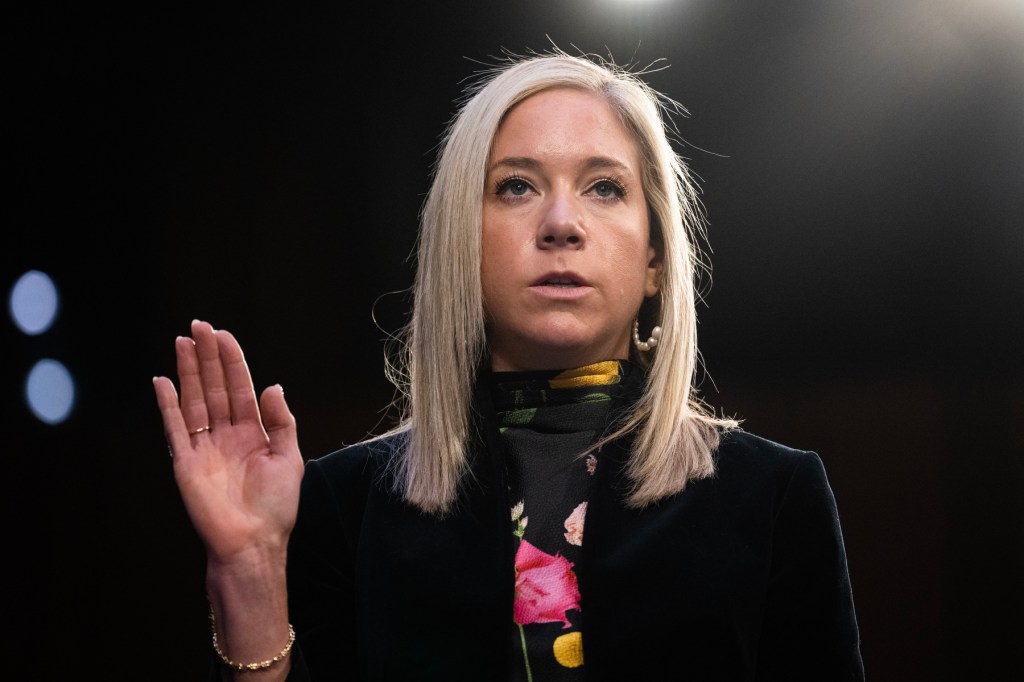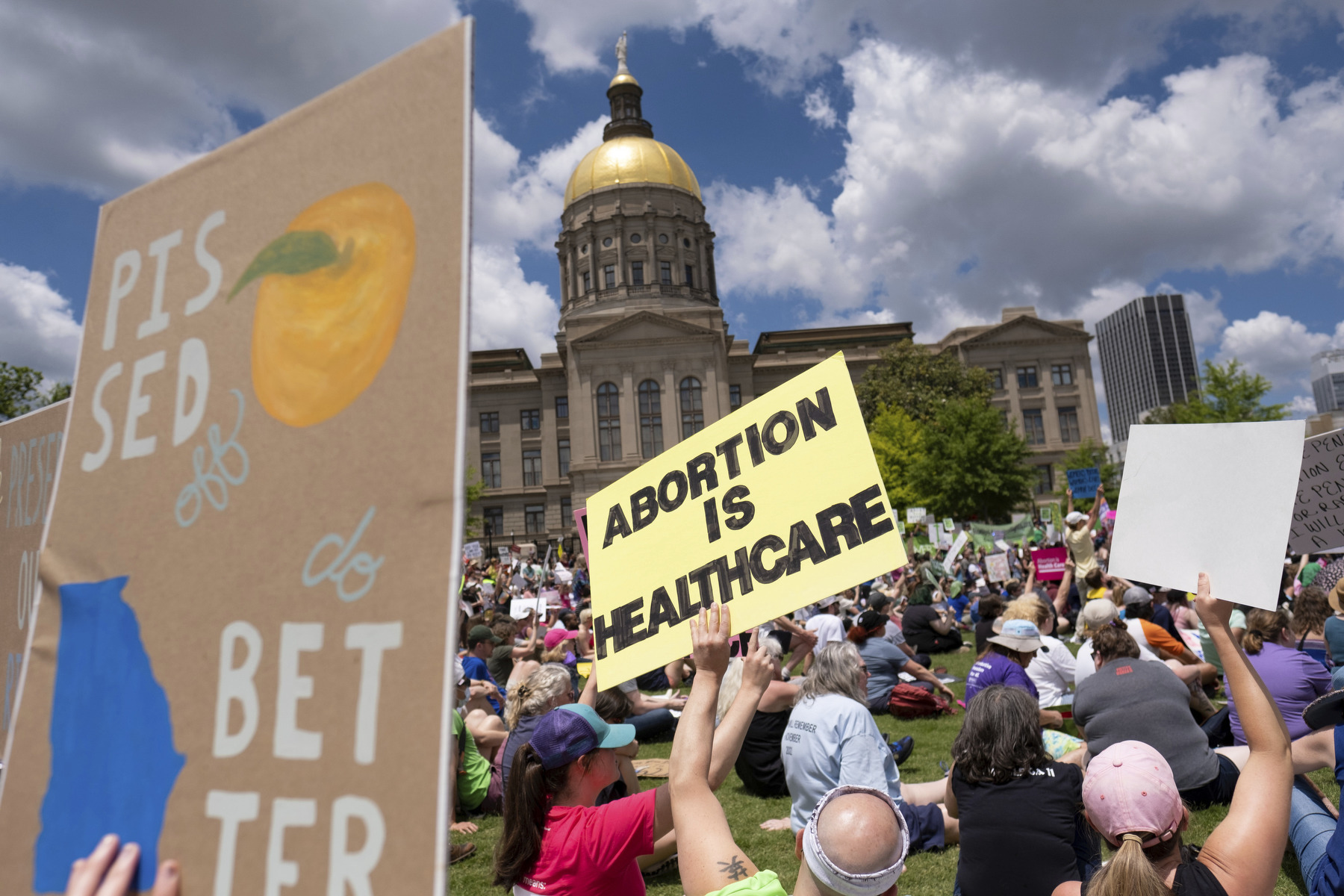Almost three years after the fall of Roe v. Wade made way for near-total abortion bans, state lawmakers are weighing whether to offer more specific guidance about when doctors can perform abortions in a medical crisis.
Texas, Kentucky and Tennessee all passed laws this year ostensibly clarifying the scope of their abortion bans, a reaction to climbing sepsis rates and harrowing stories of patients who have suffered or died preventable deaths. Since June 2022, lawmakers in at least nine states have introduced such bills.
But doctors, attorneys and policy experts say that the laws being enacted will not solve the problems health providers have been forced to navigate since the end of Roe: The risk of being punished has deterred physicians, hospitals and health systems from providing consistent care, even when it is needed.
“The problem with these clarifying laws is they don’t expand access under the law, they don’t change the definitions, and they don’t remove the legislative interference in the practice of medicine,” said Molly Meegan, chief legal officer and general counsel to the American College of Obstetricians and Gynecologists.
In Texas, a bill that awaits Republican Gov. Greg Abbott’s signature ostensibly clarifies when the state’s near-total abortion ban allows for the procedure, saying explicitly that physicians do not need to wait until a patient is in imminent danger of dying to perform an abortion. The bill also requires training for doctors and lawyers on the state’s abortion law.
But lawmakers have made clear that the bill, crafted in consultation with Texas-based health professionals and abortion opponents, does not introduce new exceptions; Texas’ ban does not allow for abortions in cases of rape, incest or fatal fetal anomaly. And if enacted, it would codify a Texas Supreme Court decision that found that the state’s ban still applied even in cases with complications that could threaten a pregnant person’s health.. Such was the case for Dallas woman Kate Cox, who experienced amniotic fluid leaking and cramping — which create the risk of bacterial infection — after discovering a likely-fatal fetal anomaly in her pregnancy.
Some former abortion patients whose lives were endangered because of delayed or denied care, including several who challenged the Texas abortion ban, said they fear Senate Bill 31 may not address situations like theirs.

Amanda Zurawski, who sued the state after being denied an abortion when experiencing a life-threatening condition called preterm premature rupture of membrane, said at a legislative hearing on the bill that it likely doesn’t provide the clarity she would have needed.
“It is unclear whether SB 31 would have prevented my trauma and preserved my fertility had it existed in 2022, and I find that problematic,” Zurawski said. She only received care after she developed sepsis.
Clarification bills can have mixed support in legislatures. Local physicians might back tweaks to exemption language if they see it as potentially lifesaving for their patients. Some anti-abortion advocates might also favor changes if the legislation can address certain medical emergencies that they believe fall outside of a state’s ban, such as ectopic pregnancies or preterm premature rupture of membranes.
But not all anti-abortion advocates or Republican lawmakers within these statehouses support even a small clarification.
“I think in all these cases, lawmakers are being pulled in different directions by these different constituencies,” said Mary Ziegler, an abortion law historian at the University of California, Davis. “The bills themselves are kind of muddy, because they’re trying to be different things to different people.”
The end result are clarification laws that remain unclear to physicians and their employing hospitals and health systems, who can still face high penalties for violating an abortion ban.
“When the law isn’t clear, physicians don’t intervene,” Ziegler said. “You’re not going to be willing to gamble your liberty and your medical license on an uncertain interpretation of the law.”
In Kentucky, doctors vocally opposed a Republican-backed bill that supporters said would help health professionals understand when they can provide abortions. Like in Texas, the state’s ban only allows abortion when it is necessary to save a pregnant person’s life. The clarification bill listed specific conditions that would qualify for an exception to the ban — such as sepsis, hemorrhage or ectopic pregnancy — despite concern from doctors that a delineated list wouldn’t be able to predict every possible situation where an abortion might save someone’s life.
Democratic Gov. Andy Beshear vetoed the bill in March, calling gaps in the law “literally a matter of life and death.” The state’s legislature, where the GOP holds a supermajority, voted days later to override him.
“It’s hard to create this laundry list of, ‘This is OK, this is not OK,’ because unfortunately, medicine is something with a bunch of gray areas,” said Dr. Caitlin Thomas, an OB-GYN in Louisville.
In Georgia — where pregnant, brain-dead woman Adriana Smith remains on life-support until she can give birth later this summer, and where the death of Amber Thurman was attributed to the confusion created by the state’s abortion ban — some lawmakers have asked physicians whether a clarification might allow doctors to provide abortions when the pregnancy threatens a patient’s life, possibly by listing specific conditions that qualify for an exception.
“We encouraged them not to, and said that would not be helpful,” said Dr. Neesha Verma, an Atlanta-based OB-GYN. “The more and more prescriptive you make these laws, the less space there is for clinical judgment.”
Following a case filed by seven Tennessee patients who had been denied abortions under the state’s ban, lawmakers in that state passed a law this year meant to clarify that, under the state’s ban, abortions could be performed in cases of preterm prelabor rupture of membrane or severe preeclampsia, but that the exception did not include mental health emergencies. Mental health conditions including substance use disorder, depression and confirmed or probably suicide are the largest single cause of pregnancy-related deaths in the state, according to a 2022 report.
The interest in clarifying bans — including from some lawmakers who oppose abortion — “is a response to where we know the public is and the fact that we know the public is generally supportive of abortion access and also has been presented with these terrible preventable cases since Dobbs,” said Kimya Forouzan, who tracks state policy for the Guttmacher Institute, a nonprofit abortion research organization.
That ambiguity was on display in a Texas case last year. A state judge held that the state’s abortion law exception permitted Cox to have an abortion when her doctors discovered the anomaly in her pregnancy. But the state’s attorney general, Ken Paxton, swiftly intervened, threatening legal action against any health care provider that performed an abortion on Cox. Cox ultimately left the state to terminate her pregnancy.
Michele Goodwin, a law professor at the University of California, Irvine and author of “Policing the Womb: Invisible Women and the Criminalization of Motherhood,” said state officials can do more to ensure health providers know their legal rights.
“It would be credible for states’ attorneys generals and the prosecutors who are conservative to immediately issue statements of clarity, saying that they are opposed to these kinds of conditions, that they will not prosecute,” she said.





